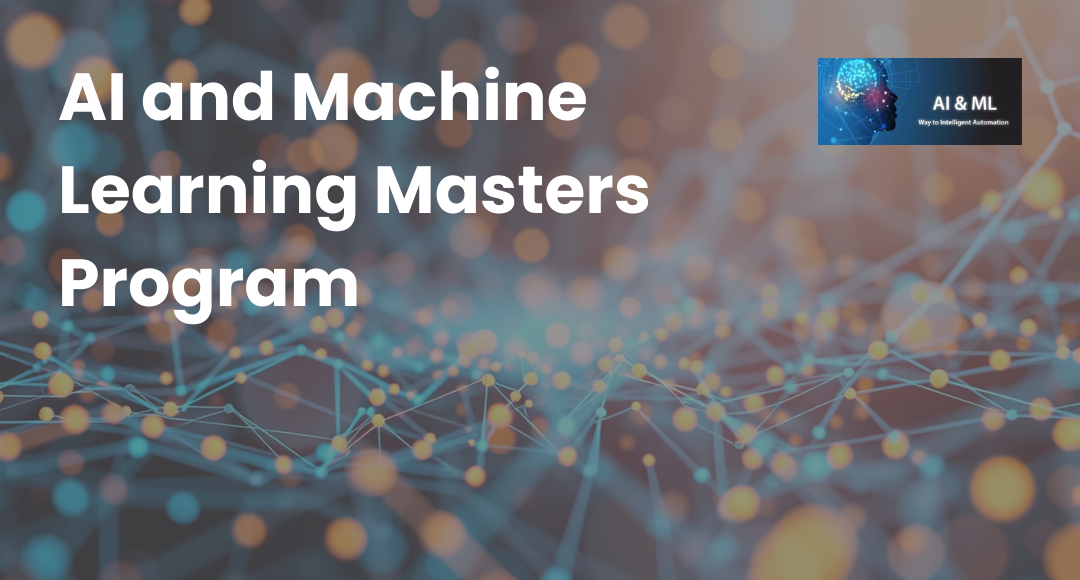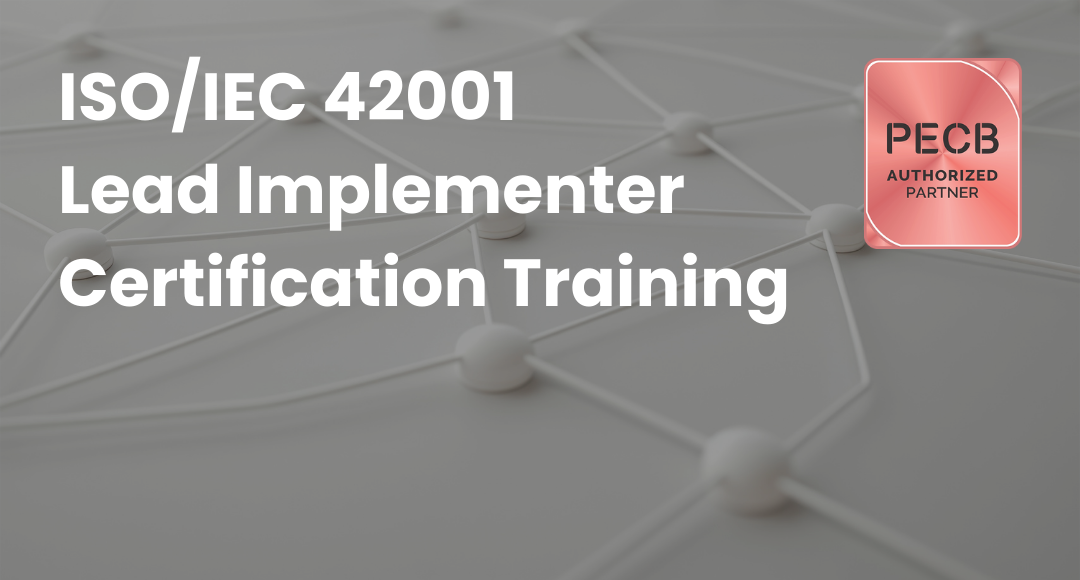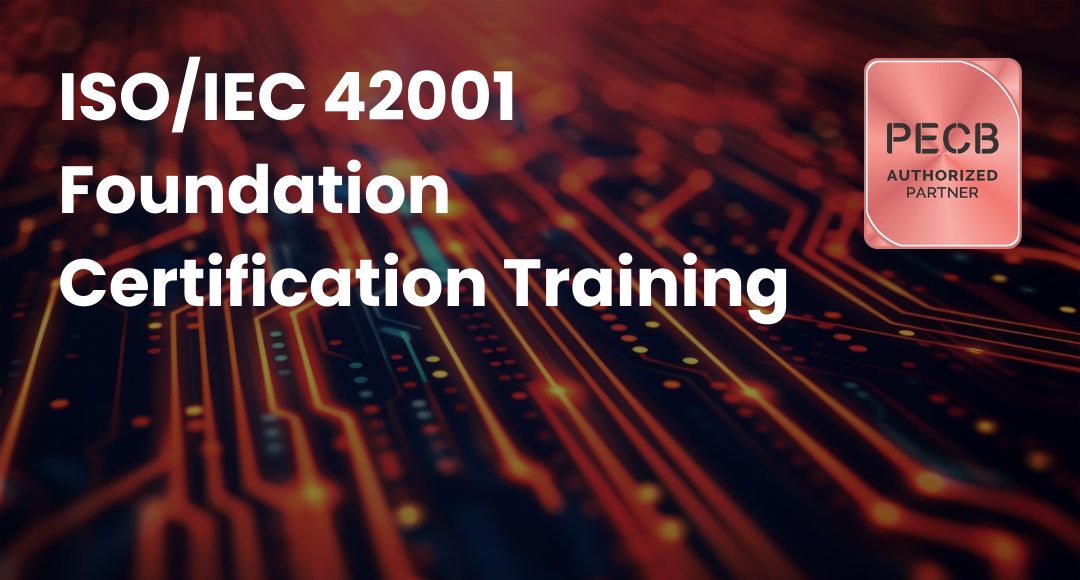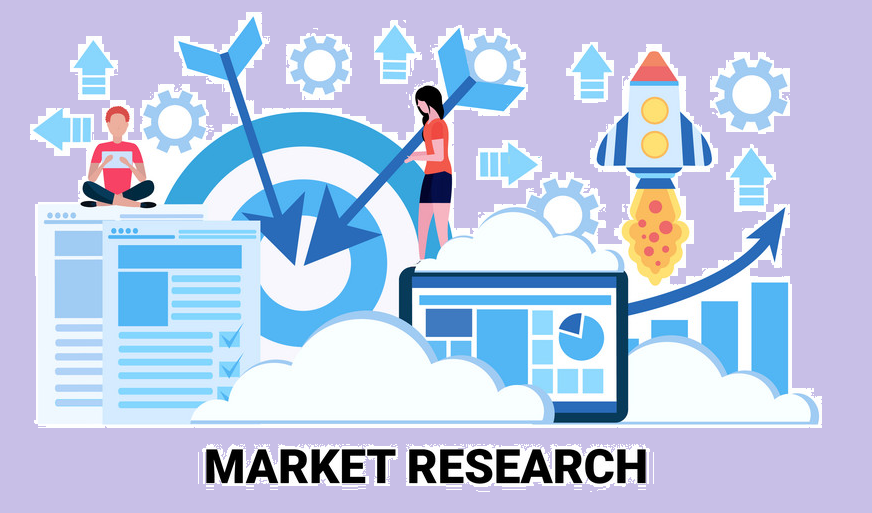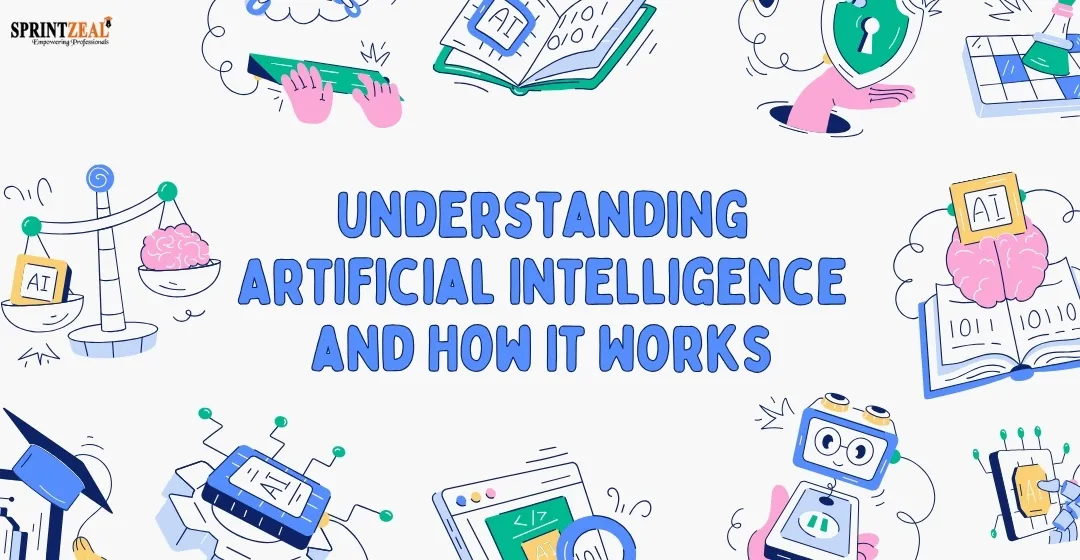Cognitive AI: The Ultimate Guide
-
 By Nchumbeni Yanthan
By Nchumbeni Yanthan
- Published on Aug 25 2025

Cognitive AI refers to cognitive artificial intelligence systems that mimic human-like thinking and decision-making processes. It combines machine learning, natural language processing, computer vision,and other technologies to analyze data, understand context, and learn from inter actions, just like the human brain.
Essentially, it's AI that can learn, adapt, and reason, rather than just following pre-programmed instructions.
In 2026, Cognitive AI ibm research and other industry leaders show that cognitive AI is not a fixed system but a dynamic technology that learns from its environment, adapts in real time, and produces context-aware insights.
It processes unstructured data such as text, voice, and images, applying advanced reasoning and natural human-like interactions to enhance decision-making, boost operational efficiency, and deliver personalized experiences across industries.
Beyond traditional AI, Cognitiveclass AI and related platforms teach how cognitive AI fuses machine learning, deep learning, and cognitive computing principles to mimic human thought, learning continuously from behavior, emotions, and interactions.
Powered by hybrid edge-cloud architectures, it supports real-time intelligence in sectors like healthcare, finance, manufacturing, and supply chains—enabling seamless human-machine collaboration that evolves with changing needs.
To dive deeper, you can explore a full cognitiveclass ibm guide to Cognitive AI in later sections of this article.
Cognitive Computing and AI (2026)
In 2026, cognitive computing works hand-in-hand with cognitive artificial intelligence (AI) to think and learn more like humans. These systems are built to understand emotions, behavior, and logic, helping people make better and faster decisions.
Unlike traditional AI, cognitive computing focuses on understanding context and human intent. It can process huge amounts of information from different sources, analyze patterns, and respond in a way that feels natural and human-like.
This is made possible by advanced tools like natural language processing (NLP), real-time pattern detection, and multi-modal AI that can work with text, speech, images, and sensor data at the same time.
Today, cognitive ai ibm is used in healthcare to improve diagnosis, in finance to predict market changes, in customer service to give personalized responses, and in research to solve complex problems. Its main strength is the ability to keep learning from new data, adapt to changing situations, and offer solutions quickly and accurately.
Table of Contents
Introduction to Cognitive AI
What’s even fascinating about the future of AI with cognitive computing is that, rather than being a specific system, it is designed to learn from the environment to engage and conclude results.
Cognitive AI brings resilient performance management by learning the unstructured data, extracting, reasoning with results, and interacting with humans as programmed in a natural manner like humans.
The revolutionary technological changes have created a greater need for applying AI for Natural Language Processing (NLP), speech or voice recognition, contract or image processing, unstructured data, and chatbots.
The machine system learns, extracts, iterates, and results from the interaction of emotion, impulse, and cognition of situated agents with human beings and their behaviour, experience, or environment.
Cognitive computing extends over or past with Artificial Intelligence and includes a similar tech approach to boost cognitive utilization.
To draw more about the guide to cognitive AI, we have provided a brief guide to cognitive AI in this article.
How does Cognitive AI Work?
Cognitive AI works by learning from large amounts of data—whether it is text, speech, images, or interactions—and using advanced techniques like natural language processing (NLP), machine learning, and deep reasoning to make sense of it.
It continuously adapts by detecting complex patterns and connections in the data, which helps it provide meaningful insights and support better decision-making for humans. This ability to learn and evolve from new information, without interruption, sets Cognitive artificial intelligence apart from traditional systems.
These systems mimic human thinking by interpreting information, reasoning through problems, and interacting naturally with users through chatbots or other interfaces.
For example, Cognitive ai ibm models can analyze a job seeker's skills and preferences to suggest suitable career paths or salary ranges, making it easier for people to find relevant opportunities.
In the best sense, cognitive computing with AI technologies relies on driven solutions to resolve issues. These can be through the help of data extraction, data mining, facial recognition, speech recognition, NLP, and others.

The system is made to learn, iterate, reason, state, and interact like humans. Such systems and chatbots work with concepts and symbols as well.
For instance; AI approaches to direct the system to assess the skills of a user trying to find a job, while cognitive computing suggests career paths or salaries, or job vacancies. T works hand-in-hand to make decisions-based easier for humans.
Also, cover related blogs: 7 Amazing Facts About Artificial Intelligence
Characteristics of Cognitive AI
Below are the main characteristics of Cognitive AI:
Adaptive:
Learns, adapts, and reasons in real time by mimicking human cognitive processes. It evolves continuously through interactions with users, experiences, and changing environments.
Interactive:
Seamlessly connects and communicates with devices, cloud services, applications, and users to enable smooth and natural interactions.
Iterative and Stateful:
Remembers past interactions and activities to refine analysis, solve unresolved issues, and improve over time through continuous learning.
Contextual:
Understands the meaning and relevance of data by analyzing factors like user behavior, language patterns, demographics, time, and situation, delivering tailored insights from both structured and unstructured data.
Reasoning and Learning:
Draws logical conclusions from complex data, continuously improving its knowledge through experience to support better decision-making.
Natural Language Understanding:
Uses natural language processing to interpret and generate human-like responses, enhancing communication and making interactions intuitive.
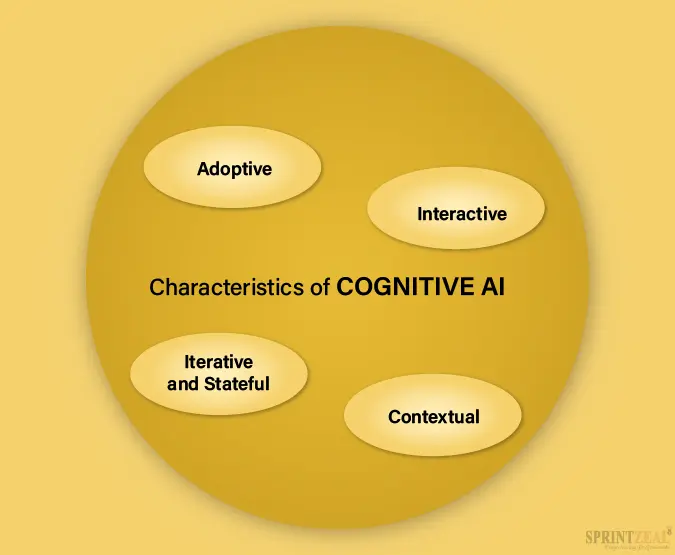
Uses of Cognitive AI
The best applications of Cognitive AI involve;
AI-Driven Cybersecurity Validation
Detects and predicts cyber threats, vulnerabilities, and software bugs using advanced analytics.
Uses encryption, situational awareness, and automated self-patching to secure communication and data systems.
Cognitive Analytics in Healthcare
Assists doctors by collecting, analyzing, and interpreting medical data for diagnosis and treatment planning.
Supports life sciences research and personalized healthcare solutions through cognitiveclass ai trained professionals
Intent-Based Natural Language Processing (NLP)
Understands human language in context to automate analysis, reasoning, and decision-making.
Reduces manual effort and streamlines business processes and management tasks.
AI-Generated Content
Creates high-quality content faster than manual processes.
Continuously improves through learning, reasoning, and mimicking human creativity and psychology.
Smart Internet of Things (IoT)
Connects and optimizes devices for data exchange and automation.
Delivers personalized experiences, e.g., tailoring social media feeds or smart home interactions.
Cognitive Computing vs AI: Major Differences
Cognitive Computing:
Goal: Mimics human thought processes to support decision-making rather than replace it.
Focus: Uses computer science + cognitive science to solve complex, context-heavy problems.
Capabilities: Emotion analysis, facial recognition, fraud detection, and understanding unstructured data.
Role: Extracts and presents information so humans can make informed decisions.
Applications: Customer service, healthcare diagnostics, industrial problem-solving, and advisory systems.
Artificial Intelligence (AI)
Goal: Broader in scope—automates tasks, solves problems, and makes decisions independently.
Focus: Delivers optimal solutions by detecting patterns, predicting outcomes, and adapting through learning.
Capabilities: Uses deep learning, machine learning, and large-scale data analysis to operate like (or beyond) humans.
Role: Enhances or replaces human effort to improve speed, accuracy, and scalability.
Applications: Finance, manufacturing, security, healthcare, retail, logistics, and more.
What to Take Away About Cognitive AI
Cognitive AI is transforming decision-making by making machines smarter and easier for humans to work with. Its applications span many fields—from automating grading in education to enabling advanced features in autonomous vehicles and predicting trends in the travel industry.
From education for automating grading systems to autonomous vehicles for advanced features or travel industries for predicting pricing patterns, the applications of cognitive AI will grow even more in demand. Having an Artificial Intelligence Career Guide from experts is the best option. Considering how Artificial Intelligence Has Made Understanding Consumer Buying Behavior Easy In 2026, there are higher benefits of taking cognitive AI into action.
If you are looking forward to pursuing a career in cognitive artificial Intelligence, choosing from a globally recognized ATO (An accredited training organization) from Sprintzeal accelerates your career of interest. The Artificial Intelligence training – online, live, and classroom is specifically designed for professionals with a keen interest in cognitive ai ibm skills, AI, and Machine learning.
To learn about career-oriented all courses, you can take up the training offered by Sprintzeal and earn a certification to level up your career. For details about certification programs or queries in your field, Click Here or chat with our experts, and our course experts will get to you. Subscribe to our newsletters for recent trends and informative details.
Popular Programs
Artificial Intelligence Certified Executive (AICE) AI3090
Live Virtual Training
- 4 (650 + Ratings)
- 64k + Learners
Artificial Intelligence Foundation (AIF) AI3010
Live Virtual Training
- 4.4 (650 + Ratings)
- 58k + Learners
Certified Artificial Intelligence Expert (CAIE) AI3050
Live Virtual Training
- 5 (650 + Ratings)
- 65k + Learners
Certified Computer Vision Expert (CCVE) AI3080
Live Virtual Training
- 4 (650 + Ratings)
- 25k + Learners
Certified Deep Learning Expert (CDLE) AI3060
Live Virtual Training
- 4.6 (650 + Ratings)
- 55k + Learners
Certified Machine Learning Associate (CMLA) AI3020
Live Virtual Training
- 4.6 (650 + Ratings)
- 61k + Learners
Certified Natural Language Processing Expert (CNLPE) AI3070
Live Virtual Training
- 4.8 (650 + Ratings)
- 51k + Learners
Trending Posts
Future of AI with ISO 42001: Trends and Insights
Last updated on Aug 7 2024
Data Mining Vs. Machine Learning – Understanding Key Differences
Last updated on Dec 22 2023
Best Prompt Engineering Tools to Master AI Interaction and Content Generation
Last updated on Oct 16 2025
Deep Learning Interview Questions - Best of 2026
Last updated on Aug 9 2023
Top Machine Learning Tools You Should Know in 2026
Last updated on Oct 22 2025
What Is AI? Understanding Artificial Intelligence and How It Works
Last updated on Oct 31 2025
Categories
- Other 86
- Agile Management 50
- Cloud Computing 58
- Project Management 175
- Data Science 71
- Business Management 89
- Digital Marketing 89
- IT Service Management 36
- Programming Language 61
- AI and Machine Learning 94
- IT Security 113
- Quality Management 78
- IT Hardware and Networking 28
- Microsoft Program 5
- Workplace Skill Building 15
- Risk Management 10
- Information Security 8
- Leadership and Management 10
- Corporate Training and Development 1
Trending Now
Consumer Buying Behavior Made Easy in 2026 with AI
Article7 Amazing Facts About Artificial Intelligence
ebookMachine Learning Interview Questions and Answers 2026
ArticleHow to Become a Machine Learning Engineer
ArticleData Mining Vs. Machine Learning – Understanding Key Differences
ArticleMachine Learning Algorithms - Know the Essentials
ArticleMachine Learning Regularization - An Overview
ArticleMachine Learning Regression Analysis Explained
ArticleClassification in Machine Learning Explained
ArticleDeep Learning Applications and Neural Networks
ArticleDeep Learning vs Machine Learning - Differences Explained
ArticleDeep Learning Interview Questions - Best of 2026
ArticleFuture of Artificial Intelligence in Various Industries
ArticleMachine Learning Cheat Sheet: A Brief Beginner’s Guide
ArticleArtificial Intelligence Career Guide: Become an AI Expert
ArticleAI Engineer Salary in 2026 - US, Canada, India, and more
ArticleTop Machine Learning Frameworks to Use
ArticleData Science vs Artificial Intelligence - Top Differences
ArticleData Science vs Machine Learning - Differences Explained
ArticleTypes Of Artificial Intelligence and its Branches
ArticleWhat are the Prerequisites for Machine Learning?
ArticleWhat is Hyperautomation? Why is it important?
ArticleAI and Future Opportunities - AI's Capacity and Potential
ArticleWhat is a Metaverse? An In-Depth Guide to the VR Universe
ArticleTop 10 Career Opportunities in Artificial Intelligence
ArticleExplore Top 8 AI Engineer Career Opportunities
ArticleA Guide to Understanding ISO/IEC 42001 Standard
ArticleNavigating Ethical AI: The Role of ISO/IEC 42001
ArticleHow AI and Machine Learning Enhance Information Security Management
ArticleGuide to Implementing AI Solutions in Compliance with ISO/IEC 42001
ArticleThe Benefits of Machine Learning in Data Protection with ISO/IEC 42001
ArticleChallenges and solutions of Integrating AI with ISO/IEC 42001
ArticleFuture of AI with ISO 42001: Trends and Insights
ArticleTop 15 Best Machine Learning Books for 2026
ArticleTop AI Certifications: A Guide to AI and Machine Learning in 2026
ArticleHow to Build Your Own AI Chatbots in 2026?
ArticleGemini Vs ChatGPT: Comparing Two Giants in AI
ArticleThe Rise of AI-Driven Video Editing: How Automation is Changing the Creative Process
ArticleHow to Use ChatGPT to Improve Productivity?
ArticleTop Artificial Intelligence Tools to Use in 2026
ArticleHow Good Are Text Humanizers? Let's Test with An Example
ArticleBest Tools to Convert Images into Videos
ArticleFuture of Quality Management: Role of Generative AI in Six Sigma and Beyond
ArticleIntegrating AI to Personalize the E-Commerce Customer Journey
ArticleHow Text-to-Speech Is Transforming the Educational Landscape
ArticleAI in Performance Management: The Future of HR Tech
ArticleAre AI-Generated Blog Posts the Future or a Risk to Authenticity?
ArticleExplore Short AI: A Game-Changer for Video Creators - Review
Article12 Undetectable AI Writers to Make Your Content Human-Like in 2026
ArticleHow AI Content Detection Will Change Education in the Digital Age
ArticleWhat’s the Best AI Detector to Stay Out of Academic Trouble?
ArticleAudioenhancer.ai: Perfect for Podcasters, YouTubers, and Influencers
ArticleHow AI is quietly changing how business owners build websites
ArticleMusicCreator AI Review: The Future of Music Generation
ArticleHumanizer Pro: Instantly Humanize AI Generated Content & Pass Any AI Detector
ArticleBringing Your Scripts to Life with CapCut’s Text-to-Speech AI Tool
ArticleHow to build an AI Sales Agent in 2026: Architecture, Strategies & Best practices
ArticleRedefining Workforce Support: How AI Assistants Transform HR Operations
ArticleTop Artificial Intelligence Interview Questions for 2026
ArticleHow AI Is Transforming the Way Businesses Build and Nurture Customer Relationships
ArticleBest Prompt Engineering Tools to Master AI Interaction and Content Generation
Article7 Reasons Why AI Content Detection is Essential for Education
ArticleTop Machine Learning Tools You Should Know in 2026
ArticleMachine Learning Project Ideas to Enhance Your AI Skills
ArticleWhat Is AI? Understanding Artificial Intelligence and How It Works
ArticleHow Agentic AI is Redefining Automation
ArticleThe Importance of Ethical Use of AI Tools in Education
ArticleFree Nano Banana Pro on ImagineArt: A Guide
ArticleDiscover the Best AI Agents Transforming Businesses in 2026
ArticleEssential Tools in Data Science for 2026
ArticleLearn How AI Automation Is Evolving in 2026
ArticleGenerative AI vs Predictive AI: Key Differences
ArticleHow AI is Revolutionizing Data Analytics
ArticleWhat is Jasper AI? Uses, Features & Advantages
ArticleWhat Are Small Language Models?
ArticleWhat Are Custom AI Agents and Where Are They Best Used
ArticleAI’s Hidden Decay: How to Measure and Mitigate Algorithmic Change
ArticleAmbient Intelligence: Transforming Smart Environments with AI
ArticleConvolutional Neural Networks Explained: How CNNs Work in Deep Learning
ArticleAI Headshot Generator for Personal Branding: How to Pick One That Looks Real
ArticleWhat Is NeRF (Neural Radiance Field)?
ArticleRandom Forest Algorithm: How It Works and Why It Matters
ArticleWhat is Causal Machine Learning and Why Does It Matter?
ArticleThe Professional Guide to Localizing YouTube Content with AI Dubbing
ArticleMachine Learning for Cybersecurity in 2026: Trends, Use Cases, and Future Impact
ArticleWhat is Data Annotation ? Developing High-Performance AI Systems
ArticleAI Consulting Companies and the Problems They Are Hired to Solve
ArticleWhy AI in Business Intelligence is the New Standard for Modern Enterprise
ArticleHow AI Enhances Performance in a Professional .Net Development Company
ArticleWhat is MLOps? The Secret Architecture Behind Scaling Elite AI Systems
ArticleFoundation Models Explained: How They’re Shaping the Future of AI
ArticleHow Quantum Computing and AI are Converging to Reshape Tech Careers
ArticleUsing AI-Powered Analytics In Expense Management For Certification Training Programs
Article
